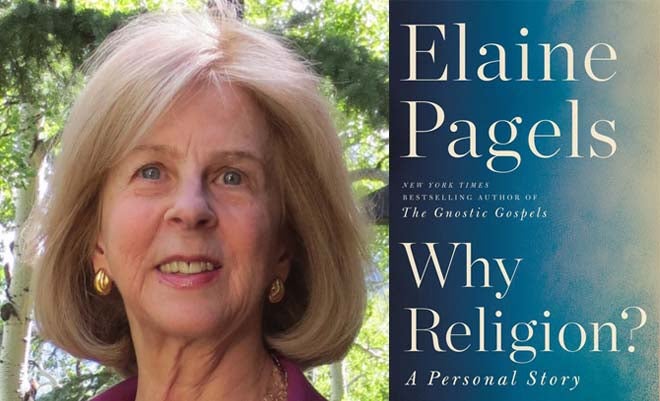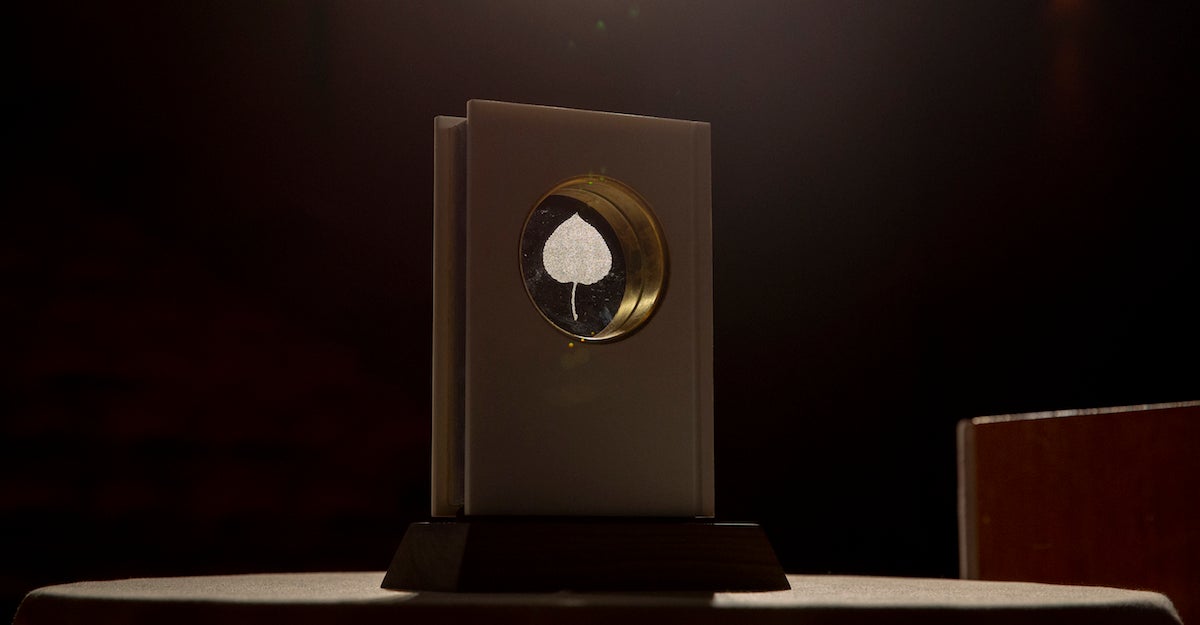Elaine Pagels writes that losing her six-year-old son Mark was “like being burned alive.” In her memoir, Why Religion?, Pagels examines losing both Mark and her husband Heinz who died merely 15 months later in a climbing accident. She explores big questions like why religion is still around in the 21st century and shares how she turned to her work involving the Gnostic gospels and ancient stories as a means of processing her pain and understanding suffering throughout time. An internationally renowned scholar of religion and Aspen Institute trustee, Pagels received the National Medal for the Humanities from President Barack Obama. She will be featured in conversation with divinity school professor Kate Bowler, author of New York Times best-seller Everything Happens for a Reason and Other Lies I’ve Loved, on February 26 as part of Aspen Words’ Winter Words series. Below is an excerpt from her memoir.

We stayed in the same room long after his life departed. During those six or seven hours, his body and features changed, as death took them over. Finally we could see that he was completely gone, his body deserted. After midnight, Heinz gently put his arms around me and said, “It’s time to go home,” and I realized that there was nothing more to do. He was right, and we walked out of the room, down the corridor, and out the back door of the hospital. Mark’s godparents had joined us at the hospital, and Sharon came back to the apartment, where Jean had stayed with Sarah. Later Sharon told me that around four a.m., when Sarah woke, she’d gotten up to care for her, but saw that, having heard the baby cry, I already was up, holding and feeding her in a rocking chair. Of this I remember nothing.
At the service for Mark, friends came from all parts of our lives, close friends and those we hadn’t seen for years. I was amazed and grateful to see them, although I felt strange, as though we were walking naked in public, utterly defenseless, the bereaved parents touching the small plain wooden coffin, covered with a beautifully embroidered altar cloth. Close friends offered to play music, especially welcome, since words were impossible to absorb. Finally, “Amazing Grace,” a song Mark loved, as Heinz and I walked out behind his coffin. We stood at the back of the church, weeping and hugging our friends, grateful to see godmother Sharon holding Sarah, now nine months old. Standing there, I seemed to see the whole scene embraced by a huge net made of ropes, with enormous spaces between the knots, through which we could be swept away at any moment, out of the world. I did not want to die, but desperately wanted to be anywhere but there; the pain was unbearable. Yet in that vision, or whatever it was, I felt that the intertwined knots were the connections with the people we loved, and that nothing else could have kept us in this world. The only words I remember from those moments was someone saying, “It’s as though you were a channel”—words that startled me, recalling words from the ritual in which I’d participated before Mark was conceived. Much later, back at the apartment after the service, I heard Heinz say to Lizzie, “I would’ve given my life for him, but no one would take it.”
Later, when we returned to the hospital to pick up Mark’s blanket and clothes, his cardiologist stopped us, put her arms around us, and said, “I’m so sorry. If I’d seen him that day, I would have immediately put him into intensive care.” She knew, of course, that he could not survive, and she wanted to let us down slowly—but at what cost of unimaginable suffering to Mark? Without a moment’s hesitation, I turned to look into her eyes, and said, “Then thank God you didn’t see him.”
Times of mourning displace us from ordinary life. Sometime later, Rebekah, Mark’s “best grown-up friend,” told us that although she hadn’t known of his death at the time, of course, on the day that Mark died, she’d been walking down the street in San Francisco when she suddenly felt that he was walking with her, holding her hand, for just a few moments. Then, too, the physician who was the mother of Mark’s “best child friend,” and who, like the other parents at his school, knew nothing of Mark’s lung disease, told us that on that same afternoon, her son Bram, also six years old, suddenly had a collapsed lung, and had been rushed to the hospital. Fortunately, that emergency was quickly resolved. Years later, I met Bram on a street in New York, walking with his mother, his wife, and their beautiful son, nearly two years old, in a stroller. Bram told me that he’s now an emergency room physician, and his wife a pediatric oncologist.
Although we’d heard that many couples separate after the death of a child, Heinz and I drew even closer, and closer with Sarah. Heartbreak had opened up his heart to an enormous empathy. We were surprised, too, to admit to each other that in our devastation, we also felt some relief from the tension that had held us for years; the sword we’d felt hanging over our lives had fallen; what we’d most dreaded had happened.
Only years later did I realize that we’d barely escaped what I can only call a vision of hell. Had we ignored the risks when Mark was two and taken him to the mountains instead of to California, the doctors would have blamed us for putting his life in danger when they discovered pulmonary hypertension, saying—or thinking—“You should never have done it; we warned you!” Far worse, we would have blamed ourselves, and, likely, each other as well. In that case, our marriage, which sustained us, likely would not have survived. As it was, we were together and present, to support him and each other. Now we still had each other, our daughter, and the astonishing grace of the life that Mark had shared with us.
Recalling this now, I can tell only the husk of the story—a story known inwardly only by those who have experienced such a loss, which we’d wish for no one else to suffer. Those who have not often say, “I can’t imagine how you felt, what that was like.” I can hardly imagine it either, even having lived through it. Recently, when someone said that, I found myself answering, “Like being burned alive.”


